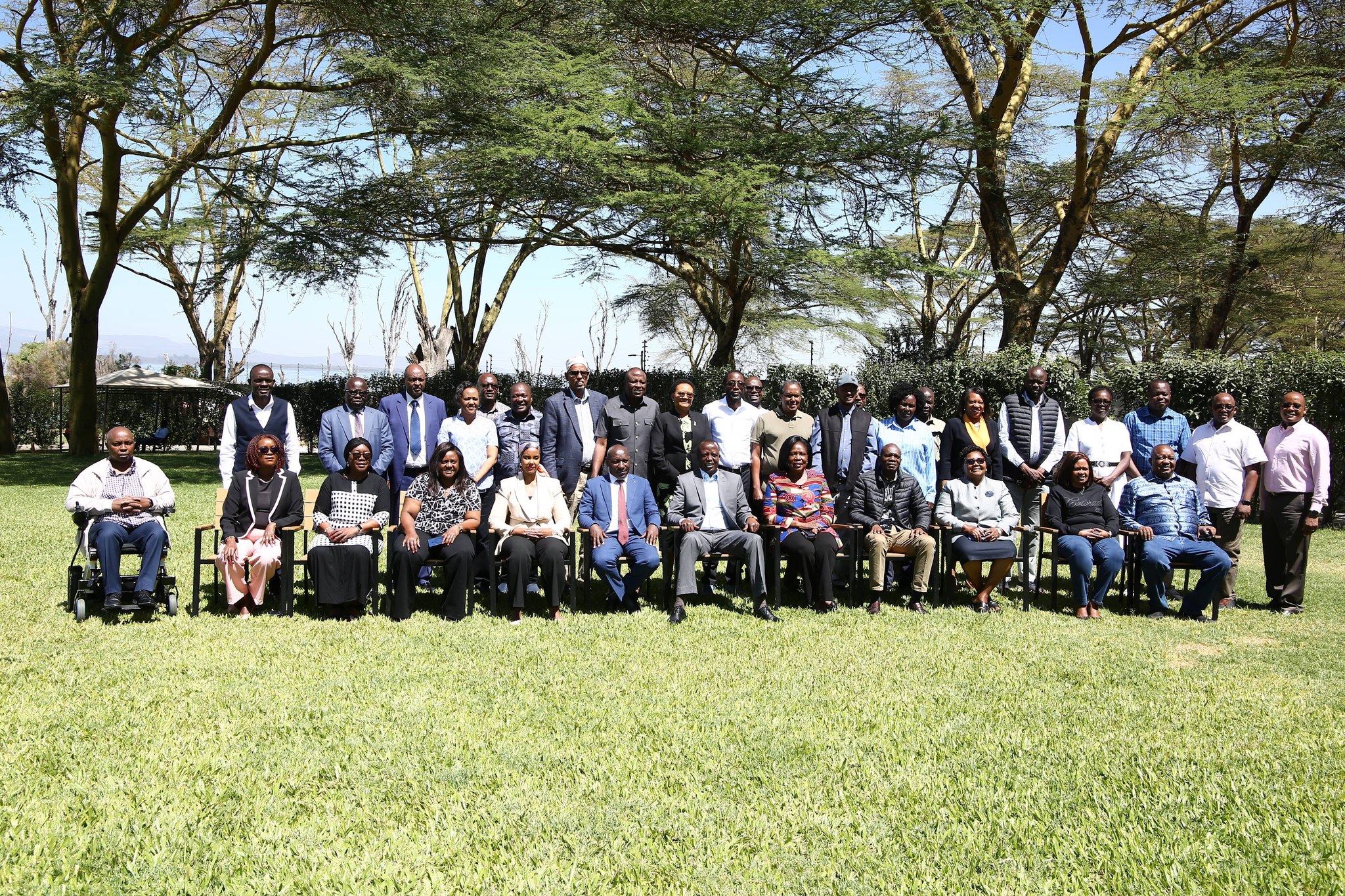Ideally, there are five Levels of Authority. My favourite author – John C Maxwell – writes about it in his heroic book titled Equipping 101. Firstly, we have position, the most basic kind of authority springing from a person’s stance on the organisational chart. It does not extend beyond the parameters of the job description.
Secondly, there is competence, the type of authority based on a person’s professional capabilities. It is the ability to do the job. Followers revere competent leaders. More so, when they evince vast expertise.
Thirdly, we have personality, a type of authority connected to personal characteristics such as radiance, brilliance, appearance, comportment and charisma.
Fourthly, there is integrity, which springs from a person’s character. It entails being honest, truthful, reliable and responsible.
The fifth level of authority is spirituality, which somewhat is the highest one. It develops from people’s experience with God, and His power working through them.
I can postulate: Teachers in schools are figures of authority. They stand out as figures of authority in different spheres. Maybe, when they are on duty, teaching in classroom or while on any instructional platforms.
In a great text titled: The Teacher’s Influence, Samuel Muriuki points out Forms of Teachers’ Authority as legitimate, charismatic, expert, reward and coercive. Let me get down to the brass tacks of this piece.
Legitimate Authority
Teachers exercise legitimate authority in relation to their positions, or jurisdictions. Wielding TSC numbers, and deployment marks their legitimate authority. This authority can also be due to the right of command. The fact that teachers are in certain positions, legitimate authority evinces itself. Unlike the other forms of teacher authority, legitimate or legal authority is not cultivated.
Expert Authority
Actually, this type of authority springs from expertise, experiences and exposure. It is an influence over opinions, ideas, insights, information; substantiated by recognised definite and specialised knowledge. In the case of preceptors, expertise refers to subject matter, knowledge, pedagogy and methodology. Expert authority entails high level of knowledge and skills the teacher wields as well as the ability to impart learners with requisite knowledge, beliefs, attitudes and skills.
Teachers with expert authority also know how to speak in public. Apart from being eloquent they are also sensitive. They talk to students wisely. They do not kill students’ dreams through empty rhetoric and careless talk. They do not have loose lips that sink ships.
READ ALSO:
https://educationnews.co.ke/schools-compete-in-climate-change-competition-at-cardinal-otunga-mosocho-high-in-kisii/
Moreover, teachers can augment their expert authority by having the marvellous mastery of various concepts and content presented in their areas of specialisation. They can go back to school, attend seminars and workshops to become better, brighter and smarter.
They can confer with their contemporaries in order to fine-tune what they know. They can read ravenously. Then, teachers who become generators of good ideas and bright-eyed insights in their spheres of influence, also command expert authority. Publishing books, contributing in print media, and sharing expert opinions in radio and television — fortifies expert authority of teachers.
Reward Authority
Somewhat, everyone enjoys receiving rewards, awards and good gifts. Giving of gifts is one of The 5 Love Languages, as perfectly brought out in Garry Chapman’s beautiful book. Other love languages include: Words of affirmation, quality time, acts of service and physical touch. People good at giving out gifts stand to understand the language of love. Whoever can reward, appreciate and approve people can win hearts and minds with a lot of ease. Again, I dote on John C Maxwell: “To lead yourself, use your head; to lead others, use your heart. Always touch a person’s heart before you ask him for a hand.”
In a school set up, teachers have the power to reward students in umpteen ways. They can use some effective rewards such as acknowledging good grades, giving special responsibilities, focusing on positive forms of reinforcement. Being prone to privileges and praise, recognitions, encouragements, edifications, and anything else that can be taken for granted that students ravenously desire that can be given as a form of extrinsic motivation. Students should feel valued and treasured by teachers. This is one of the best ways to leg up their intrinsic motivation.
Charismatic Authority
Ideally, teachers express charismatic authority when they show respect and affection towards learners. In another heroic book titled Be a People Person, John C. Maxwell contends that CHARISMA stands for — Concern, help, action, results, influence, sensitivity, motivation and affirmation. Concern focuses on the ability to show that you care. Charismatic teachers are conscious of the wise words of Theodore Roosevelt: “People do not care how much you know until they know how much you care.” Help focuses on the ability to reach out. Educators should possess the gift of grace. Why? Because the Greek word ‘gift’ is ‘charisma’ — meaning the ‘gift of grace’. Action is all about the ability to make things happen. In the distant past, when Evangelist John Wesley was asked why people seemed to be attracted to him, he answered, “Well, you see, when you set yourself on fire, people just like to come and see you burn.”
Results focus on the ability to produce. Educators who have a puissant impact on learners never confuse activity with productivity while holed up in the school environment. Influence means the ability to lead. Teachers are lifters, ladders and leaders to students. Leadership is influence. Nothing less. Nothing more. Sensitivity leans on the ability to feel and respond. Teachers should wield basic helping skills like empathy. Motivation means that educators are able to give hope and help. Ability to foster hope, in the years of yore, is what made men of God great. They became beacons of light and hope to plenty of people.
For instance, Isaiah talked of God doing a new thing (Isaiah 43:18-19). Jeremiah talked of God having good plans for us (Jeremiah 29:11). John — the revelator — talked of a new heaven and new earth (Revelation 21). Jesus, rabbi — a great teacher ― talked of being born again (John 3). Affirmation is the ability to build up using wise words of encouragement.
Therefore, charismatic authority evinces itself through educator’s exceptional personal quality – personality – and ability to inspire loyalty and obedience from the students. Teachers that are likeable, pleasant, pleasing, charming, or funny, find it easy to assert charismatic authority. Over and above, tutors can develop this type of authority only if they manage to establish steadfast rapport with students: knowing them well. Establishing cordial relationships with them is of great essence. Investing in students is not an exercise in futility. In some sense, when teachers make deposits in the ‘emotional bank accounts’ of students, they can make withdrawals as opportunities to influence acceptable behaviour.
Coercive Authority
In this type of authority, educators use of disincentives, punishments, or negative reinforcement to mould the desired type of behaviour. Teachers have in their power the right to use disincentives, withhold privileges, give out stern warnings, point out dire consequences, or issue punishments to students who mess or miss the mark. By doing this, tutors exercise their coercive authority. Coercive authority implies that students have refused to follow rules and regulations.
Then, woe betides them; they face the music. No student should go scot-free after contravening the raft of school rules. No matter how much of the other forms of authority a teacher wields, without some modicum of coercive authority, it is likely that some impertinent student will take advantage of their freedom to cross lines without the concern of boundaries. Albeit, as teachers assert coercive authority, they should desist from being prone to ineffective coercive authority like shame, guilt, personal attacks, embarrassment, harassment, witch-hunt, withdrawal of affection and public humiliation.
By Victor Ochieng’
The writer is a facilitator in seminars for teachers. vochieng.90@gmail.com. 0704420232
You can also follow our social media pages on Twitter: Education News KE and Facebook: Education News Newspaper for timely updates.
>>> Click here to stay up-to-date with trending regional stories






